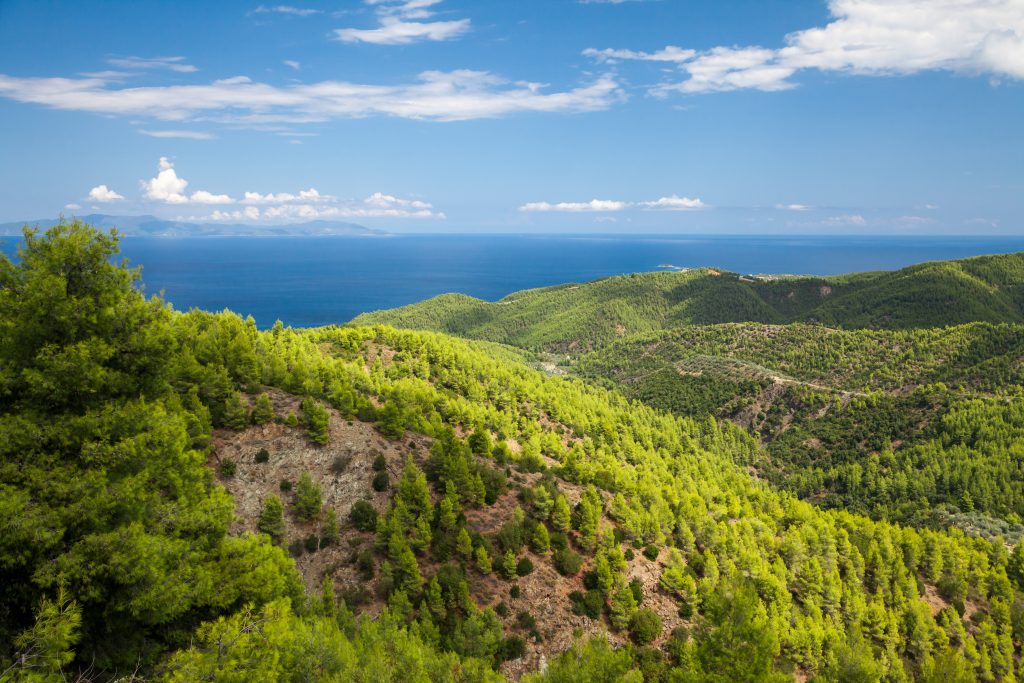
In the face of global challenges like climate change, biodiversity loss, and population growth, resilience theory offers strategies to strengthen landscapes. Learn how resilience can help navigate these complex issues.
Resilience as a solution for the global triple challenge
Humanity is facing a huge challenge: we need to take care – feed, provide shelter, and health – of more and more people. We need to mitigate climate change while at the same time adapting to the part of it that has already happened. And we have to stop the enormous loss of plants and animals in nature – of the biodiversity on which ecosystems provide ‘environmental services’ to humans.
This “Triple Challenge” isn’t just happening in one place—it is happening all over the world, on land, in the water, and in the air. Think of the Earth as a big puzzle made up of different pieces called “landscapes”, where nature and people interact in multiple, complex, and specific ways. Each landscape has its own unique features, but they all face similar problems.
Humanity obviously is using the land a lot, which sometimes puts extreme stress on it, and releases much carbon dioxide into the atmosphere – about 10% of the human-made greenhouse gas emissions are due to changing land use practices and deforestation. Climate change is also, in turn, affecting these landscapes, making some areas hotter, some wetter, and some drier. And as we build cities, farms, roads, and mines, we’re disrupting natural habitats and causing damage to ecosystems.
To tackle this “Triple Challenge,” experts are looking at ways to make landscapes stronger and better able to handle these problems. This approach called enhancing landscape resilience, is gaining attention as a smart strategy to address these tough challenges.
What is resilience? The word “resilience”, coming from the Latin verb resilire, means the capacity to bounce back, recover or spring forward in the face of adversity. Landscape resilience can then be broadly understood as the capacity of a landscape to persist, adapt and transform, when necessary, in the face of disturbances or changing conditions, to maintain its essential structure, functions and identity. Resilience thinking offers a robust framework to manage non-linear dynamics, uncertainties and unpredictable changes in complex adaptive social-ecological systems.
The Mediterranean basin is one of the most densely populated regions in the world, and also one of the most vulnerable to climate change. According to the Intergovernmental Panel on Climate Change (IPCC), the average surface temperature in the Mediterranean region is currently 1.5°C higher than before the industrial era, compared to only 1.1°C for the global average. Future warming in the region is expected to occur 20% faster than the world average.
As a contribution to the ResAlliance project, ResAlliance has just published an Infobrief providing a short overview of the main concepts used in resilience theory. Based on a literature review, this Infobrief presents three complementary visions of resilience and describes eight key attributes that landscape managers need to prioritise to enhance resilience and effectively navigate through complexity, non-linearity, uncertainty, and surprise. Download the document “Resilience Thinking: A Brief Overview” to learn more.
The importance of policy makers for the LandNet
The ResAlliance LandNet is open to individuals (farmers, foresters, researchers, policy makers, journalists, etc.), public agencies and authorities (at national, regional, or local levels), research and education institutions, media, business and industry, and civil society organisations. Before the end of June, every participant is invited to share and discuss best practices to enhance landscape resilience in the Mediterranean region, covering the four following thematic areas: governance, management practices, technology and finance. Through the participation of policy makers in the LandNet these best practices will be able to inspire future national or territorial policies, strategies and action plans to foster sustainable development and landscape resilience in the Mediterranean region.
Within the lifetime of the ResAlliance project, CIFOR-ICRAF, in collaboration with other partners including the European Forest Institute (EFI), Etifor, Pau Costa Foundation, Jouzour Loubnan, the National Institute of Rural Engineering Research, Water and Forests (INRGREF), the Mediterranean Agronomic Institute of Chania (CIHEAM), FoReSTAS, the International Union for Conservation of Nature (IUCN), and the European Federation of Agroforestry (EURAF), will also lead the organisation of two policy forums.
The first one, to be held during the 8th Mediterranean Forest Week in Barcelona, Spain (4–8 November 2024), will invite policy makers and other stakeholders to express the main challenges, barriers, bottlenecks, innovations, or knowledge gaps that they perceive when trying to maintain or increase landscape resilience in Mediterranean forests, natural ecosystems, or agricultural lands.
A white paper on policy recommendations will be elaborated after the forum, taking the lessons learned at the forum into consideration, to encourage political and economic support for farmers and foresters in the four thematic areas mentioned above to achieve landscape resilience. ResAlliance partners will then collect practical solutions covering these four thematic areas to address the needs, challenges and knowledge gaps expressed during the forum and generate policy recommendations, governance models and management practices. These solutions and recommendations will be presented, during the second half of 2025, in a second international policy forum.
If you are interested in participating in these forums, you can subscribe to the LandNet here.
Visit ResAlliance’s official website
This article was originally written by:
Nathanaël Pingault & Christopher Martius
The Center for International Forestry Research and World Agroforestry (CIFOR-ICRAF)
The post Resilience thinking: a promising avenue to address the multiple challenges of our time appeared first on Resilience Blog.